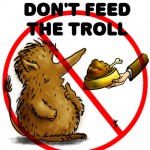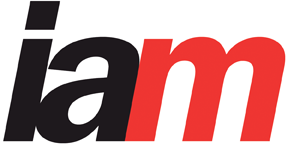The IP Business Congress ("IPBC") was held on June 21-23 in Chicago. This meeting, established by IAM Magazine, brought IP business experts, both lawyers and non-lawyers, from around the world to discuss issues relevant to IP. If, like me, you were unable to attend, you will appreciate the blog authors who have thoughtfully posted their summaries and thoughts about the Congress. (If anyone comes across any more, please let me know and I will add them.)
Joff Wild: IAM Magazine Blog
Michael Martin: Broken Symetry Blog
Duncan Bucknell: IP ThinkTank Blog
Peter Zura: 271 Blog (Great overview of the NPE break-out session)
IP.com: Securing Innovation (Interviews with IP Hall of Fame Inductees)
IP Business Congress: Blog Summaries for Those Who Couldn’t Attend
Everything’s Negotiable: How Corporations Can Drastically Reduce Their IP Legal Costs without Sacrificing IP Quality
Corporate legal managers and the business teams they support complain seemingly constantly ab out outside counsel expense, and intellectual property ("IP") is no exception. And, why wouldn't they complain when every dollar spent on legal representation is money that is effectively removed from the company's P&L statement? This sets up an ongoing tension between corporations and law firms to reduce legal costs even while lawyers' incomes have sky-rocketed in recent years.
For most corporate buyers of legal services, however, the ability to obtain substantive cost reduction has been somewhat limited due to the lack of transparent information available about legal fees. It may be even more difficult for corporate legal services buyers to gain meaningful reductions in IP costs because of the highly specialized nature of this area of law practice which, arguably, makes IP more of a "Black Box" than most areas. Moreover, regardless
out outside counsel expense, and intellectual property ("IP") is no exception. And, why wouldn't they complain when every dollar spent on legal representation is money that is effectively removed from the company's P&L statement? This sets up an ongoing tension between corporations and law firms to reduce legal costs even while lawyers' incomes have sky-rocketed in recent years.
For most corporate buyers of legal services, however, the ability to obtain substantive cost reduction has been somewhat limited due to the lack of transparent information available about legal fees. It may be even more difficult for corporate legal services buyers to gain meaningful reductions in IP costs because of the highly specialized nature of this area of law practice which, arguably, makes IP more of a "Black Box" than most areas. Moreover, regardless
Is There an Emerging Business Model for IP Lawyers’ Owning So-Called "Patent Trolls"? Only Until Their Corporate Clients Find Out.
Dennis Crouch of The PatentlyO blog recently posted an intriguing tidbit about about well-known IP attorneys Carl Moore (Of counsel at Marshall Gerstein); Timothy Vezeau (patent attorney at Katten Muchin); and Nate Scarpelli (who used to and still appears to be associated with Marshall Gerstein). These prominent members of the Chicago IP community appear to be "moon-lighting" from their respective law practices to act as managing partners at a patent holding company called "Virtual Photo Store LLC" ("VPS"). As reported in PatentlyO, VPS is currently involved as defendant in a Declaratory Judgment action.
Here is a copy of the DJ Complaint, also posted at PatentlyO. (Interestingly, the Complaint lists VPS' address as that of the Marshall, Gerstein law firm.)The Complaint alleges that VPS is a non-practicing entity
about well-known IP attorneys Carl Moore (Of counsel at Marshall Gerstein); Timothy Vezeau (patent attorney at Katten Muchin); and Nate Scarpelli (who used to and still appears to be associated with Marshall Gerstein). These prominent members of the Chicago IP community appear to be "moon-lighting" from their respective law practices to act as managing partners at a patent holding company called "Virtual Photo Store LLC" ("VPS"). As reported in PatentlyO, VPS is currently involved as defendant in a Declaratory Judgment action.
Here is a copy of the DJ Complaint, also posted at PatentlyO. (Interestingly, the Complaint lists VPS' address as that of the Marshall, Gerstein law firm.)The Complaint alleges that VPS is a non-practicing entity
News Items: IAM 250, IP Metrics Benchmarking Study and New Blog for Innovation Entrepreneurs
Regular readers of the IP Asset Maximizer blog will note that my postings have been a bit sparse lately. I have been taking some time off with my family, and will be continuing to do so until later in June 2009. I appreciate your patience. I have some timely news items to share in the interim, however.
IAM 250 Awards  I am proud to announce that I have been named one of the IAM 250 for 2009. This award is given by IAM Magazine to those non-corporate IP Strategists judged by their peers as the leaders in IP Strategy. With Duncan Bucknell, Suzanne Harrison, Kevin Rivette, Andrew Watson and many others whom I respect greatly on the list, it is a great honor to appear on this inaugural list of the world's leaders in
I am proud to announce that I have been named one of the IAM 250 for 2009. This award is given by IAM Magazine to those non-corporate IP Strategists judged by their peers as the leaders in IP Strategy. With Duncan Bucknell, Suzanne Harrison, Kevin Rivette, Andrew Watson and many others whom I respect greatly on the list, it is a great honor to appear on this inaugural list of the world's leaders in
Patent Attorneys Can Create Value-Added Services for Their Clients by Assisting with Open Innovation Efforts
As someone who assists corporations and entrepreneurs in monetizing their patents, I am continuously on the lookout for potential technology buyers. To this end, I subscribe to a number of services that provide "wish-lists" of technology that others are seeking to acquire. The most notable of these are Innocentive.com and Yet2.com. Recently, I have seen a number of technologies on each of these websites that are possibly relevant to patents that I have obtained for clients over the last several years. While this could be a coincidence, I also think it could be a signal that more companies are dipping their toes into the Open Innovation space, as opposed to relying solely on internally developed products or technologies. Patent attorneys seeking to improve the value they provide to clients would be well-served regularly reviewing the listings on these databases and spreading the word to their firm
Looking for Inside Info on the Automotive Bailout and Other Business Issues? It May Be Hiding in Plain Sight in US Patent Assignment Database
 One of the under-utilized aspects of available US patent data is the business information effectively "hiding in plain sight" in the U.S. Patent Office Assignment database. While it used to take weeks or months for assignments to be recorded, in recent years, the USPTO has implemented a very efficient electronic filing functionality that results in assignments being available for review almost immediately after being presented for recording. (This is arguably the most efficient process today in the USPTO.) Because most patent owners appear to avail themselves of electronic filing option when recording their assignments, one can find a wealth of information in the USPTO Assignment Branch.
To this end, I recently uncovered an intriguing tidbit of information related to the Automobile Bailout when performing a wholly unrelated patent monetization marketability study for a client. In confirming that a patent was
One of the under-utilized aspects of available US patent data is the business information effectively "hiding in plain sight" in the U.S. Patent Office Assignment database. While it used to take weeks or months for assignments to be recorded, in recent years, the USPTO has implemented a very efficient electronic filing functionality that results in assignments being available for review almost immediately after being presented for recording. (This is arguably the most efficient process today in the USPTO.) Because most patent owners appear to avail themselves of electronic filing option when recording their assignments, one can find a wealth of information in the USPTO Assignment Branch.
To this end, I recently uncovered an intriguing tidbit of information related to the Automobile Bailout when performing a wholly unrelated patent monetization marketability study for a client. In confirming that a patent was
Chief Circuit Judge Michel Agrees with Me: NPE’s (aka "Patent Trolls") are Not Necessarily "Illegitimate"
On his great 271 Blog, Peter Zura posted excerpts of the Chief Circuit Judge Michel's keynote address at the FTC hearings on "The Evolving IP Marketplace" last December where Judge Michel addressed the state of patent law and patent reform. Anyone interested in patents, the USPTO and patent reform should take a look. I posted a comment on this post, and am reposting it here (with additions) along with Judge Michel's comments about NPE's as presented on the 271 blog. Specifically, I was intrigued by Chief Circuit Judge Michel's view that NPE's ("non-practicing entities" also known by the pejorative term "patent trolls") should not be viewed as somehow "illegitimate." He apparently believes that by allowing those who are on the receiving end of NPE lawsuits to control the argument by "naming and framing" (my phrase) the problem as "trolls" is not helpful. Here is the excerpt of this part of
Want to Obtain Patents to Protect You from Competitors Knocking Off Your Innovative Products or Technology? It’s Easy-Don’t Be "Selfish"
Recently the CEO of a start-up asked me for the most important advice I could give before she filed a patent application directed toward protecting her company's core technology. In response, I said "don't be a selfish patent applicant." Few patent applicants obtain such counsel from their advisers and it shows: the vast majority of patents are written from a selfish perspective. (Note that I am using "selfish," in the context that the term is used in marketing i.e., thinking that others see the same things in your product or technology as you do. When one selfishly markets her product or technology, she assumes that others will buy it for the benefits she sees, not for the reasons upon which consumers will base their purchasing decisions. So when I say that most patents are written "selfishly," I mean that applicants (both individual and corporate inventors alike) approach the patenting process with
Why Does Your Company Fail to Treat IP Asset a Corporate Asset? A New Article Proposes Organizational Behavior as the Problem
While we can argue about the exact amount, without question, intangible assets form the majority of corporate value today. Matters involving IP are therefore predominately business issues, as opposed to legal issues or technical issues. For example, IP in the form of patents or trademarks (or both) frequently serves as a basis of the premium pricing that can be obtained from a differentiated product line. Also, IP directed toward a competitor's technology can legally limit the ability of a competitor to expand its offerings, thus decreasing its ability to compete. There are many other examples of the business value of IP, all which when strategically obtained and managed can greatly increase the overall financial position of the corporation using IP as a business tool. Notwithstanding the substantial dollars associated with corporate IP decisions, most organizations leave questions of IP in the hands of their legal and technical teams. Of course, many
A Response to PWC’s "Starry-Eyed" View of the Value of Litigation as Effective Way to Monetize Patents
 I recently became aware of this patent litigation analysis prepared by PriceWaterhouseCoopers (“PWC”) (hat tip: Marcus Malek of the Intangitopia blog). The report appears to be rigorously prepared from data obtained from a large number of reported patent litigation cases dating from 1995. I read this report with interest and think that anyone who is interested in the ROI of patent enforcement should read it also. The data provide a wealth of information for anyone even thinking about bringing a patent case or who is involved in defending against claims of patent infringement.
Although the data in the PWC provides informational value, I nonetheless have a big problem with the following assertion that is prominently presented on page 18 under the title “What This Means for Your Business”:
"In light of the findings in this study, patent
I recently became aware of this patent litigation analysis prepared by PriceWaterhouseCoopers (“PWC”) (hat tip: Marcus Malek of the Intangitopia blog). The report appears to be rigorously prepared from data obtained from a large number of reported patent litigation cases dating from 1995. I read this report with interest and think that anyone who is interested in the ROI of patent enforcement should read it also. The data provide a wealth of information for anyone even thinking about bringing a patent case or who is involved in defending against claims of patent infringement.
Although the data in the PWC provides informational value, I nonetheless have a big problem with the following assertion that is prominently presented on page 18 under the title “What This Means for Your Business”:
"In light of the findings in this study, patent


